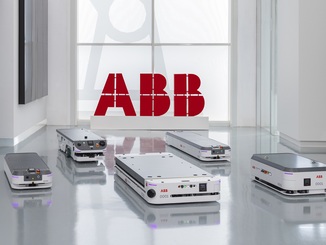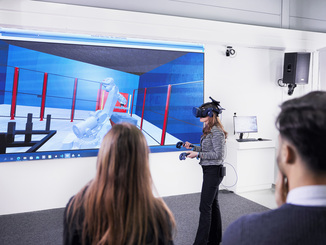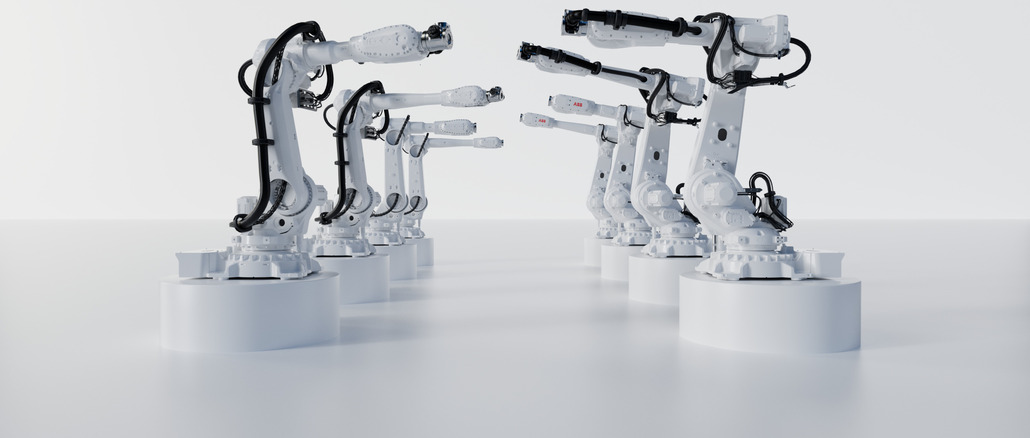
ABB has added two new product families to its portfolio of large robots, which are available in eight variants with payloads from 70 to 180 kilograms and reaches from 2.3 to 3.0 meters. Speed and precision, along with a robust design, enable improved productivity and performance with longer runtime.
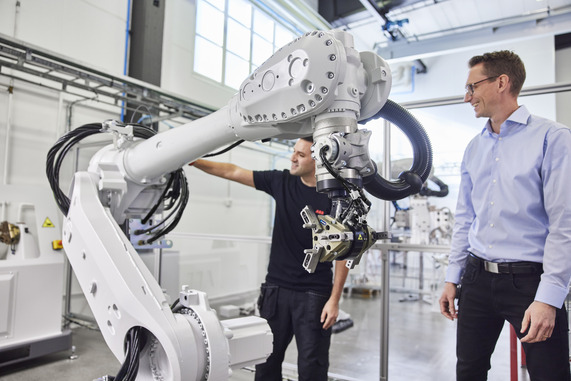
© ABB
ABB’s IRB 5710 and 5720 robots feature high speed, precision and flexibility, as well as a more robust design with integrated cabling. As a result, they ensure higher productivity as well as improved performance with longer runtime. Both robot types are designed in particular for complex production applications.
The IRB 5710 and IRB 5720 robot families are available in a total of eight variants, offer payloads of 70 to 180 kilograms and ranges of 2.3 to 3 meters. Accordingly, their range of applications is particularly diverse – from material handling and machine loading to assembly. They are also suitable for specific tasks in electric vehicle manufacturing, including battery module pick-up and placement, high-precision assembly operations, and parts handling. The robots also show their advantages in applications such as injection molding, metal casting, cleaning and spraying.
“With these new robots, we are continuously driving our expansion in the fast-growing electric vehicle market. In addition, we are meeting the demand of our customers, who increasingly require robust solutions with the necessary speed, path accuracy and flexibility to handle complex battery assembly tasks,” emphasizes Jörg Reger, head of the global Automotive business line at ABB Robotics. “The shift from combustion engines to electric vehicles is leading to increased demand for fast, adaptable production lines. Production concepts for electric vehicles are often very complex, and components such as batteries and semiconductor modules can be very heavy or extremely sensitive. These requirements call for solutions that offer the highest level of precision and repeatability to avoid errors in production.”
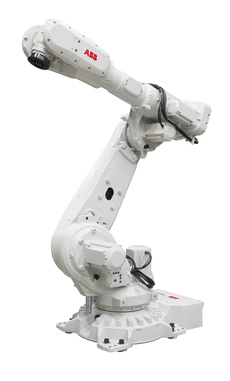
© ABB
Both robot families are available with the new V250XT OmniCore controller – the latest member of ABB’s OmniCore controller family. With ABB’s TrueMove and QuickMove motion control technology, the V250XT controller enables the IRB 5710 and 5720 robots to achieve class-leading speed, increasing production capacity and reducing manufacturing time. With excellent position repeatability (0.04 to 0.05 mm), path repeatability (0.1 to 0.14 mm) and path accuracy (1 to 1.2 mm), the IRB 5710 and IRB 5720 are more precise than many comparable robots in their class, enabling them to ensure high manufacturing quality.
Additional protection against damage and cable wear is provided by ABB’s LeanID Integrated DressPack, which allows cables to be routed inside the robot’s upper arm and along the wrist instead of being routed externally. In this way, they follow the movement of the robot arm exactly without oscillating. In addition, the cables are protected from heat and collisions. In this way, downtime and maintenance costs can be reduced and the service life of the robots extended by several years. A robot equipped with LeanID is also easier to program and simulate with predictable cable movements in ABB’s RobotStudio offline programming software.
Both robot families have multiple mounting options, including floor, wall, ceiling and pedestal mounting, to provide maximum flexibility in production layout.
Additional variants for applications such as welding, cutting or material application will be available from 2023.
Web:
www.abb.com



